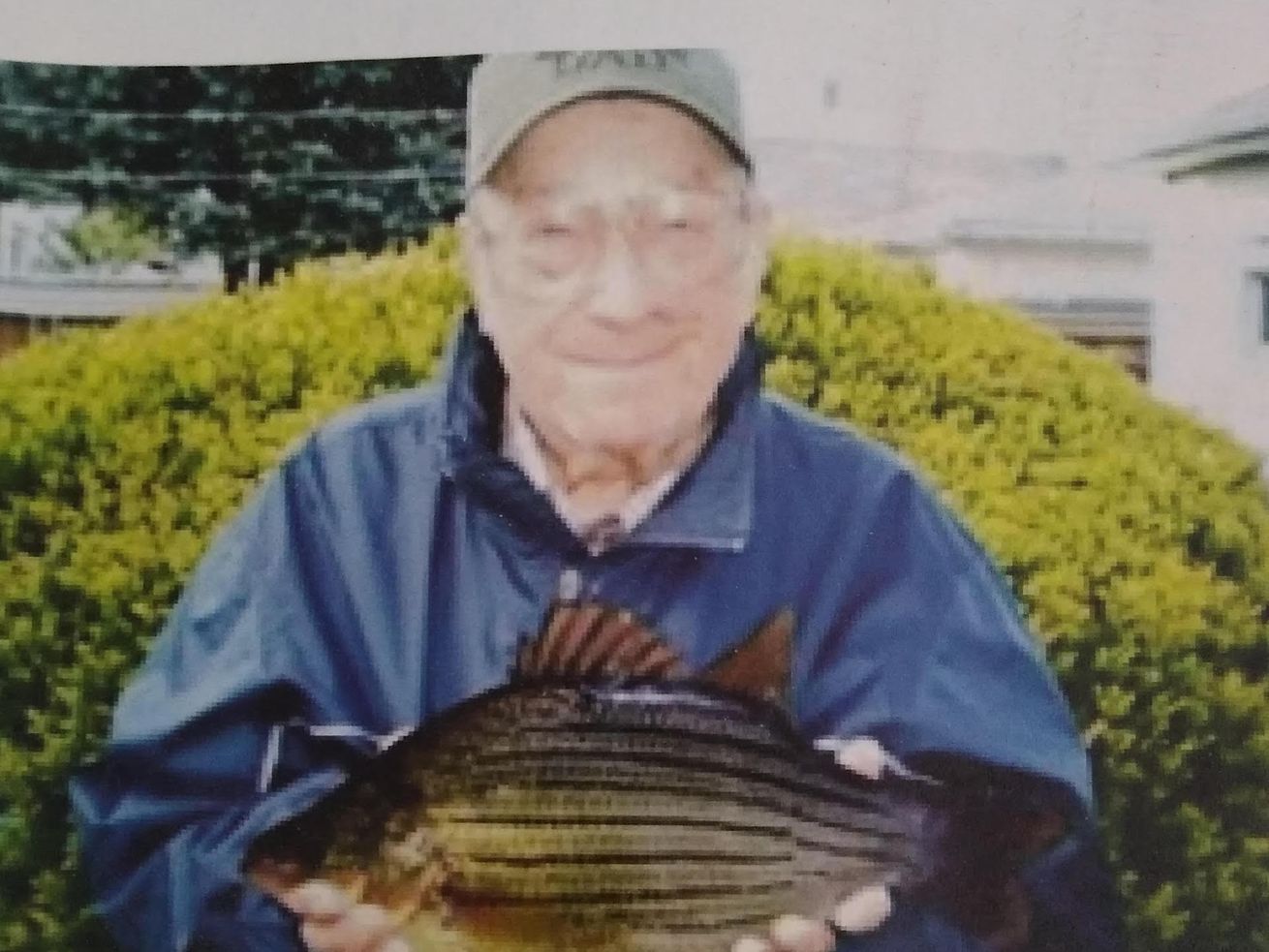
Caught on the Wolf River near Lake Winneconne in Wisconsin, it was 15 inches long and 2.27 pounds — a monster for a yellow bass. He nearly threw it back.
Casey Bloom caught a Morone mississippiensis that was a real monster.
A monster fish. Mr. Bloom caught the outsized yellow bass in 2012 on the Wolf River near Lake Winneconne in Wisconsin. Measuring 15 inches long and weighing 2.27 pounds, it broke a 40-year-old Wisconsin weight record for a yellow bass caught with a hook and line.
Though small enough to hold in his hands, it was a leviathan compared to a typical yellow bass.
In an article in the Wisconsin State Journal, outdoor reporter Patrick Durkin said Mr. Bloom’s fish “might be as rare and impressive as any muskie, bear or buck mounted above a Wisconsin bar.”
“Yellow bass are typically six to nine inches, so fish 15 to 16 inches are definitely reaching maximum lengths for the species,” said Karl J. Scheidegger of the Wisconsin Department of Natural Resources.
Mr. Bloom, a Northwest Sider who fished for nearly his whole life — about 88 of his 93 years — died April 10. He had congestive heart failure and recently was diagnosed with cancer, according to his son Gary Bloom.
Mr. Bloom used to be a familiar face at Belmont Harbor, Montrose Harbor and Navy Pier. After retiring, he’d head almost every day to Lake Michigan, where he enjoyed an easy camaraderie with other retirees and anglers.
“If the fish weren’t biting, they’d sit down and talk for hours,” his son said.
Mr. Bloom shifted his fishing to Wisconsin after he bought a retirement home near Oshkosh on Lake Winneconne.
/cdn.vox-cdn.com/uploads/chorus_asset/file/22456493/unnamed_5.jpg)
Provided
When he caught his record yellow bass on April 21, 2012, Mr. Bloom had no idea what a feat that was and thought of throwing it back.
“I thought it was just a fish,” he later told the Chicago Sun-Times.
But his son had a hunch the catch was special. So they took it to be weighed by Wisconsin DNR officials on the certified scale at the Winneconne Piggly Wiggly.
State biologists weren’t even sure at first it could be a yellow bass. One was quoted as saying, “It’s like a 7-foot human.”
Mr. Bloom held the hook-and-line record for a Wisconsin yellow bass until a 16.1-inch, 2 pound, 12-ounce fish beat his catch in April 2013, a record that still stands.
He had his fish mounted. It’s still on display above the cash register at Critters Wolf River Sports in Winneconne, owner Chris Boucher said.
Young Casey grew up in Bucktown in a house that was one of many torn down to build the Kennedy Expressway.
His mother was Harriet Jendrey, and his father Casimer Bloom worked for Brach’s candy. Mr. Bloom’s paternal grandfather, who was from Poznan, Poland, was named Kazimierz Kwiatkowski when he arrived at Ellis Island, where an immigration official told him that Kwiatkowski translated roughly to “flower.” Henceforth, he told the new immigrant, his last name would be Bloom.
Casey was born Casimir Bloom. He went to St. Hedwig and Drummond grade schools.
It was easy for a kid to make a little money back then, in the 1930s, his own kids remember him telling them.
“He said you could go to a junkyard on Ashland Avenue by the river, and you could rent a big pushcart or wagon for a nickel, and go down the alleys,” his son said. “They would pick up cardboard, newspapers, bottles, brass, copper. That’s how they made their spending money.”
/cdn.vox-cdn.com/uploads/chorus_asset/file/22456490/unnamed_8.jpg)
Provided
He worked summers as a “boat boy” at a resort in Twin Lakes, Wisconsin, where he sold bait and attached motors to boats.
After a year at Tuley High School, “He quit because he needed to help his mom and dad pay for their house,” his son said.
He became a gift-box glue operator at a company now known as Field Packaging Solutions. He worked there 43 years, broken up by a stint in the Army during the Korean War, serving stateside.
He and his future wife Gloria met at a bowling alley. They were married for 62 years, until her death in 2018.
/cdn.vox-cdn.com/uploads/chorus_asset/file/22456491/unnamed_4.jpg)
Provided
In addition to fishing, Mr. Bloom liked to hunt rabbit, pheasant, quail, duck and deer. “Everything that was shot, we ate,” his son said.
/cdn.vox-cdn.com/uploads/chorus_asset/file/22456494/unnamed_9.jpg)
Provided
In addition to his son, Mr. Bloom is survived by daughters Nancy Napier and Mary Alice Graf, his brother Lawrence and sister Maryann Bloom Barnett, three grandchildren and five great-grandchildren.
His kids tucked his fishing hat and a favorite pole in his casket as well as a pack of the Dutch Master President cigars Mr. Bloom liked to puff. He was then cremated.
“We’re going to end up taking some of the ashes up north to the [Wolf] river,” his son said. “He wanted to be put to sea.”
Contributing: Dale Bowman
